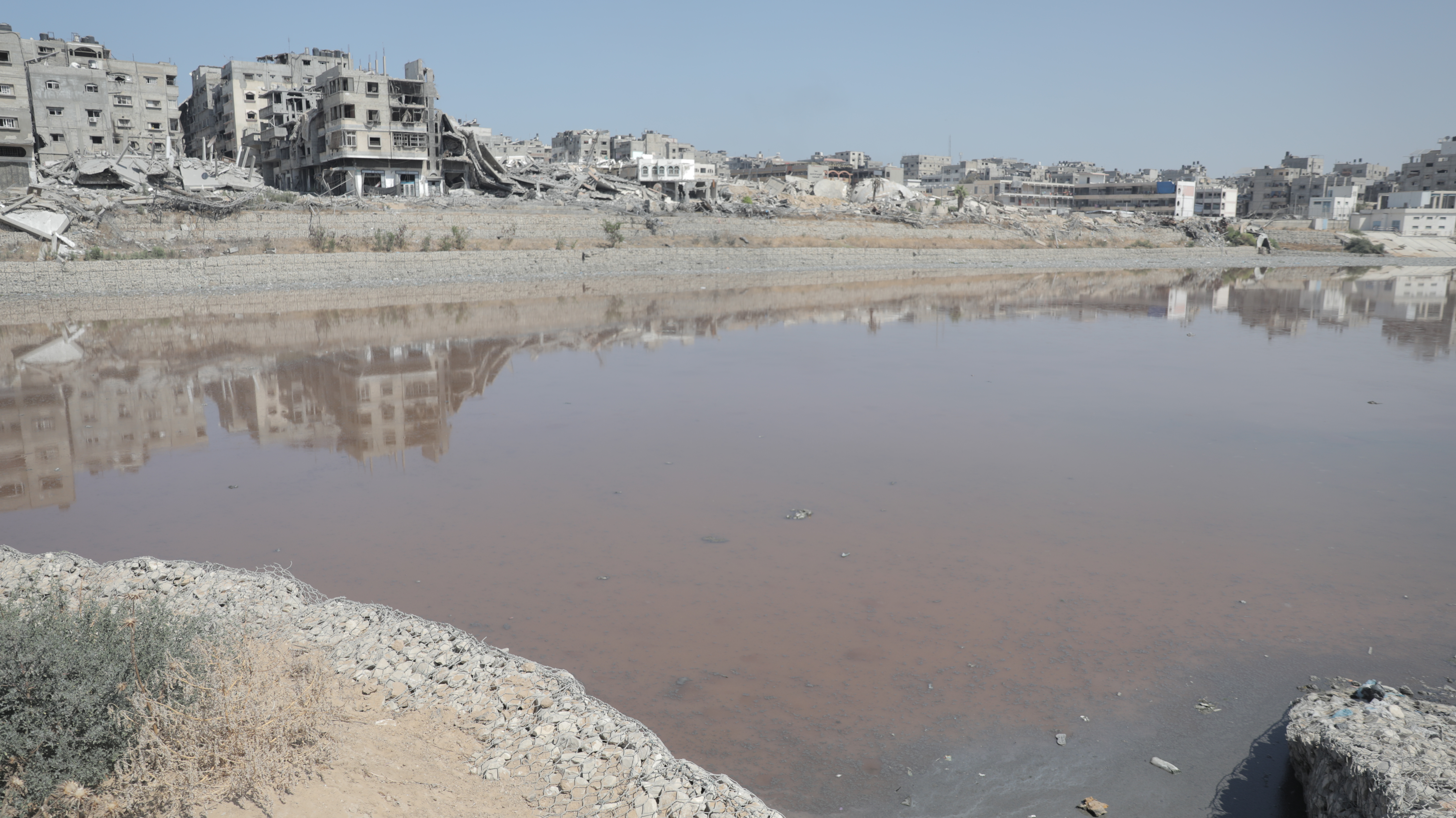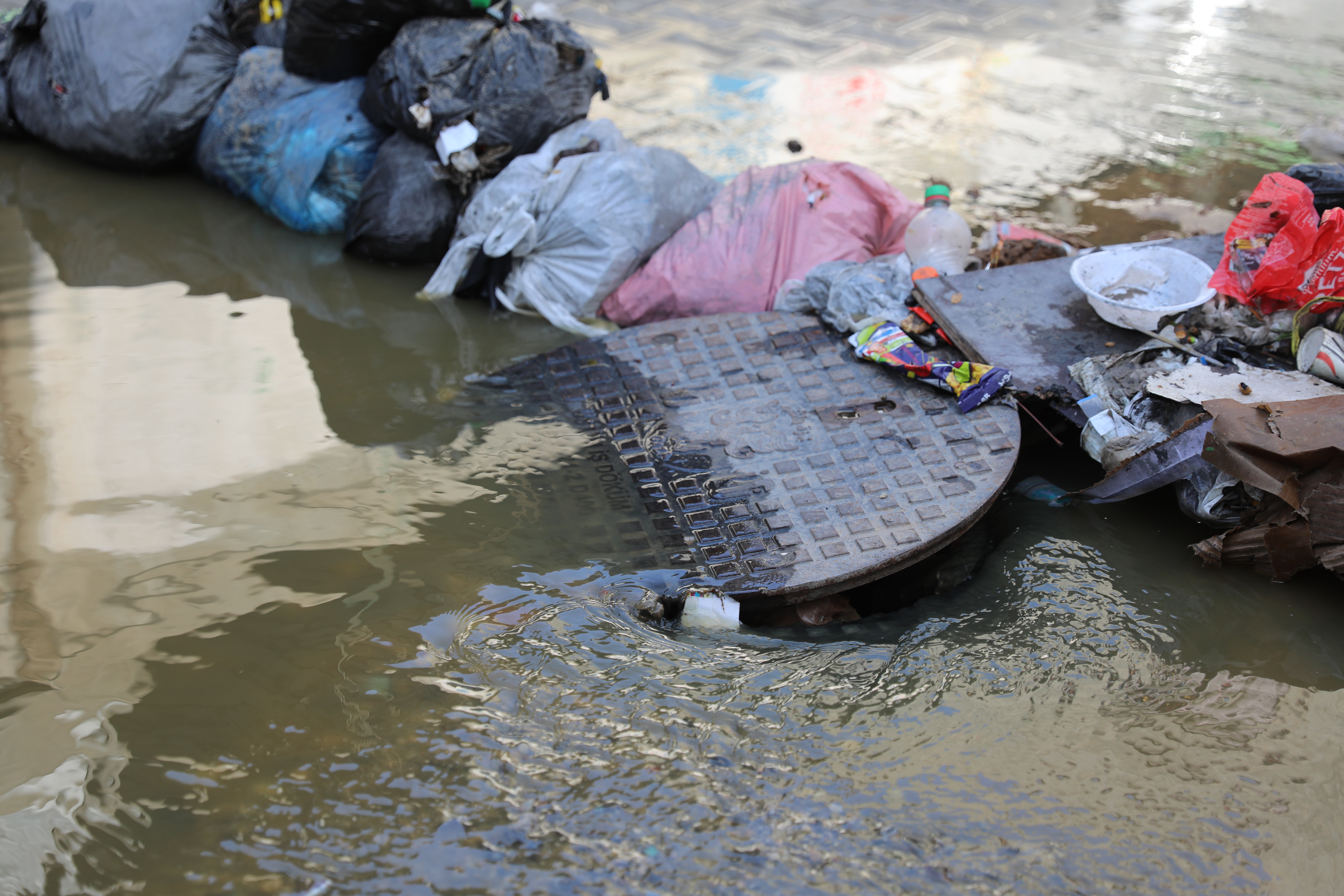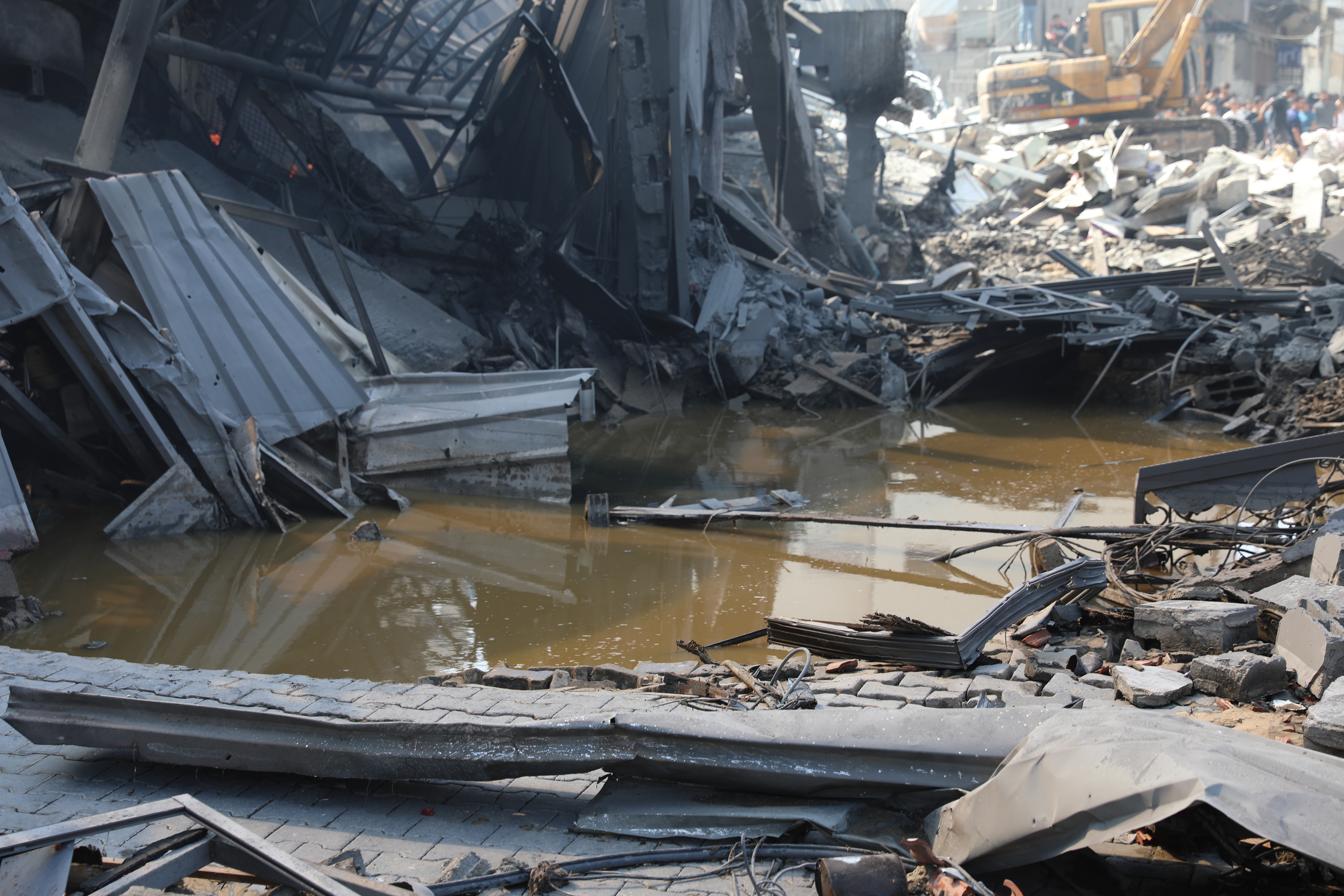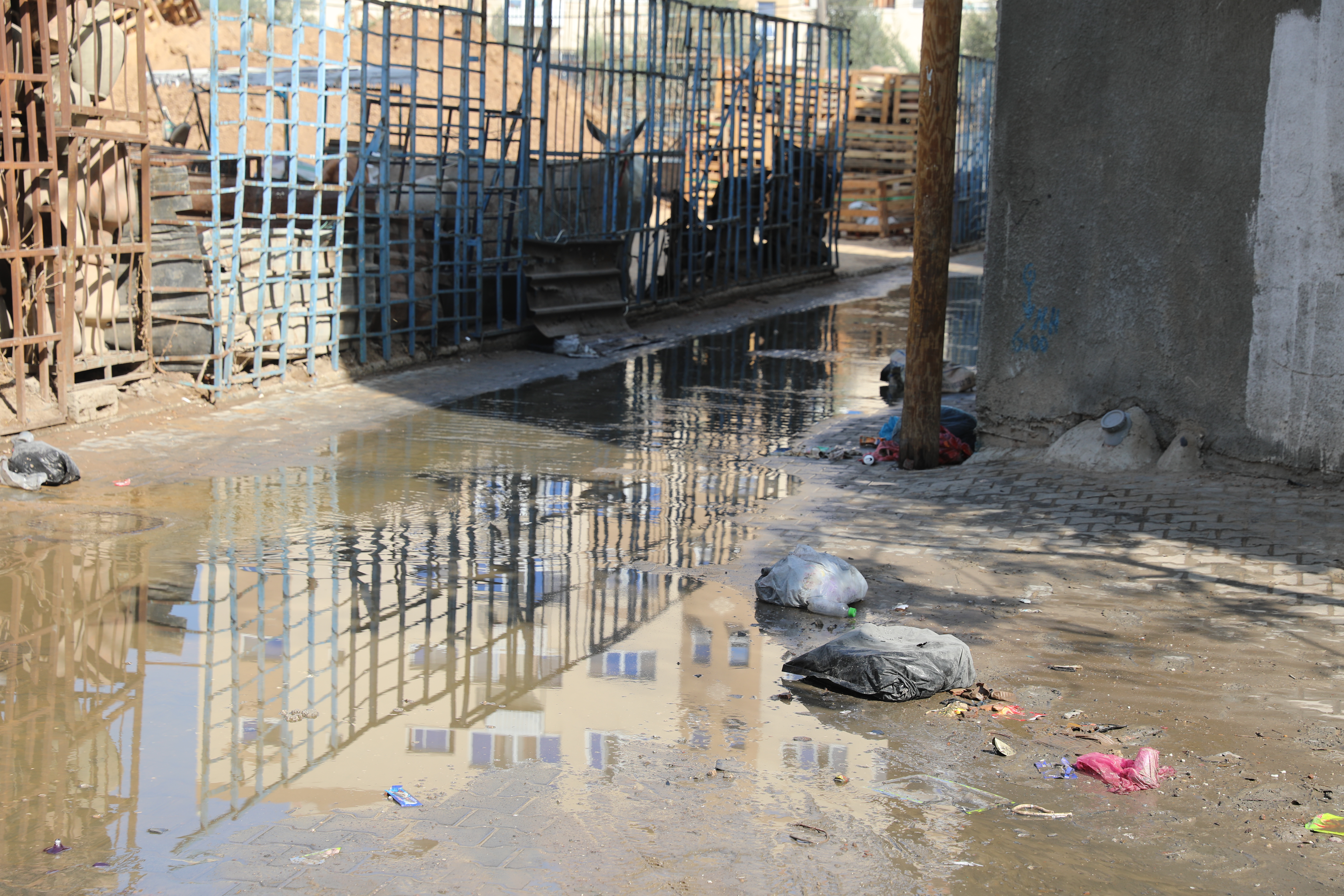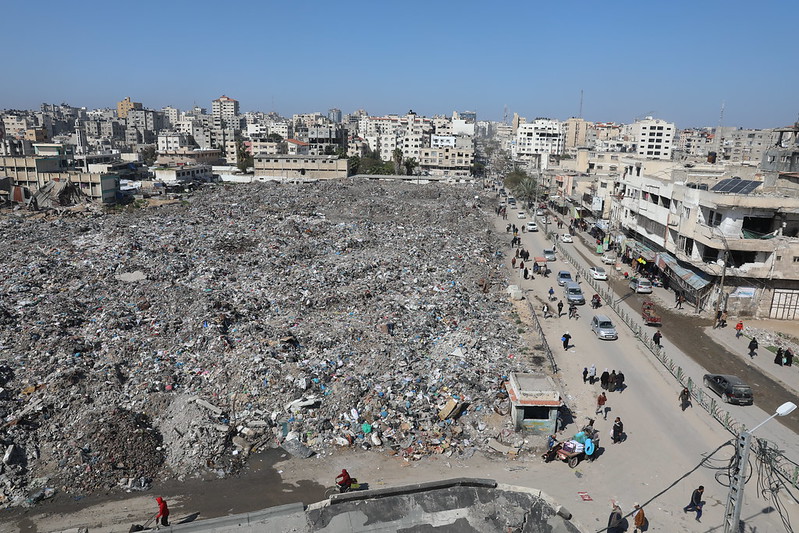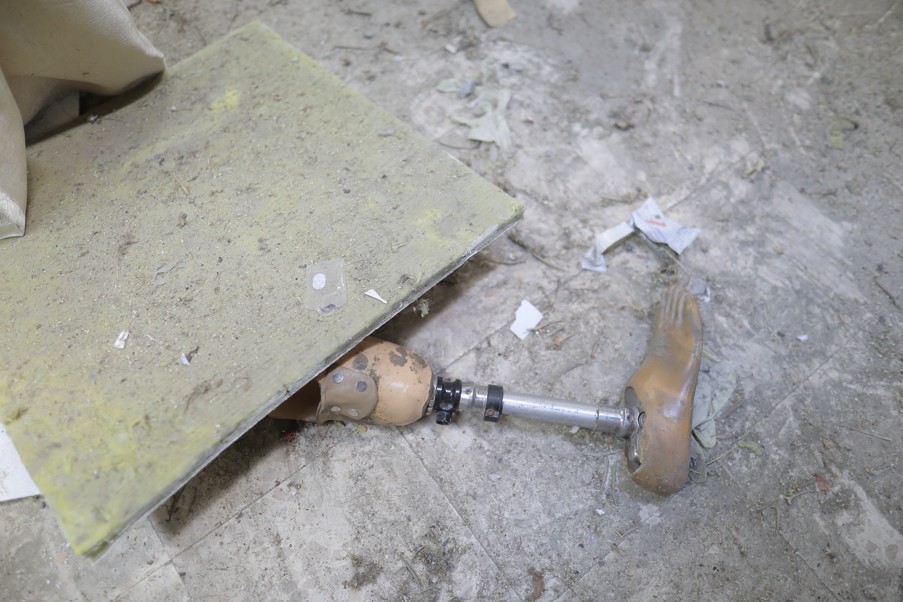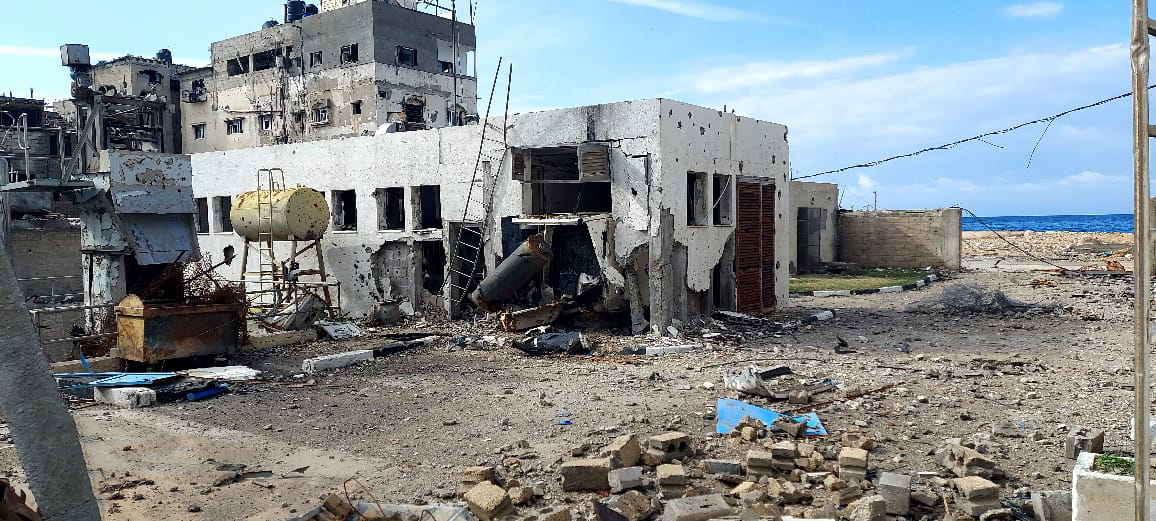
English bellow
إعلام البلدية:
حذّرت بلدية غزة من تداعيات بيئية وصحية خطيرة جرّاء استمرار ضخ كميات كبيرة من مياه الصرف الصحي غير المعالجة إلى شاطئ البحر، نتيجة الأضرار الجسيمة التي لحقت بمحطات وخطوط ضخ ومعالجة الصرف الصحي بفعل العدوان المستمر على المدينة.
وأوضحت البلدية أن البنية التحتية لقطاع الصرف الصحي تعرّضت لتدمير واسع، شمل ثماني محطات ضخ وخطوط نقل رئيسية، إضافة إلى أضرار جسيمة في محطة المعالجة بحي الشيخ عجلين، التي تعجز الطواقم الفنية حتى الآن عن تقييم حجم الدمار فيها، وسط تقديرات أولية تشير إلى تضرر أكثر من 60% من مكوّناتها الفنية والتشغيلية.
وبيّنت الإحصاءات الأولية أن أكثر من 30% من شبكات الصرف الصحي في المدينة تضرّرت كليا أو جزئيا، بإجمالي أطوال تصل إلى 175 ألف متر طولي.
وأضافت البلدية أن نحو 22 ألف متر مكعب من مياه الصرف الصحي تصل يوميًا إلى البحر دون معالجة، سواء من بركة الشيخ رضوان شرق المدينة ومن محطة السامر 6أ أو عبر المحطات المتضرّرة غربا، في ظل توقّف شبه تام لمنظومة المعالجة، نتيجة الاستهداف المباشر، وانقطاع الكهرباء، ونقص الوقود.
وأشارت إلى أن الكمية الشهرية لمياه الصرف الصحي في المدينة تتجاوز 600 ألف متر مكعب تُصرّف مباشرة إلى البحر، ما يشكّل تهديدا خطيرا للبيئة البحرية، ويزيد من خطر تفشّي الأمراض والأوبئة بين المواطنين.
وأكدت بلدية غزة أن البحر، الذي يُعَدّ المتنفّس الوحيد لأكثر من مليون ومئتي ألف مواطن ونازح في المدينة، بات ملوّثا و خطرا على الصحة العامة، خاصة مع وجود أعداد كبيرة من خيام النازحين الممتدة على طول الشاطئ، واعتمادهم على مياه البحر في احتياجاتهم اليومية مثل الاستحمام والغسيل، ما يفاقم حجم المخاطر الصحية والبيئية.
وجددت بلدية غزة مناشدتها العاجلة للجهات الدولية والإنسانية للتدخّل الفوري ودعم جهودها في إصلاح شبكات ومحطات الصرف الصحي، وتمكين طواقمها من الوصول إلى المواقع المتضرّرة، وتوفير المستلزمات التشغيلية الأساسية.
كما دعت البلدية المؤسسات الدولية إلى الاطّلاع على وثيقة الاحتياجات الطارئة لعام 2025، والتي تتضمّن تفصيلًا دقيقًا لأبرز الأولويات والمشاريع اللازمة لضمان استمرار الخدمات الأساسية والحدّ من الكارثة البيئية والإنسانية المتفاقمة.
.
Gaza Municipality Warns: 22,000 Cubic Meters of Untreated Wastewater Discharged Daily into the Sea, Posing Severe Public Health and Environmental Risks
The Gaza Municipality has issued a serious warning regarding escalating environmental and public health hazards resulting from the continued discharge of large quantities of untreated wastewater into the sea. This crisis stems from extensive damage to sewage pumping and treatment infrastructure caused by the ongoing aggression against the city.
The Municipality explained that the wastewater infrastructure has suffered widespread destruction, affecting eight major pumping stations and main transmission lines. Significant damage was also sustained at the treatment plant in the Sheikh Ajlin neighborhood, where technical teams have so far been unable to assess the full extent of the destruction. Preliminary estimates indicate that more than 60% of the plant’s operational and technical components have been compromised.
Initial statistics show that over 30% of the city's sewage network has been partially or completely damaged, covering a total length of more than 175,000 linear meters.
The Municipality added that approximately 22,000 cubic meters of untreated sewage are being discharged into the sea daily. This includes wastewater from the Sheikh Radwan basin in the east of the city, the Samar 6A station, and several damaged stations in the west. The near-total collapse of the wastewater treatment system has been caused by direct targeting, prolonged power outages, and severe fuel shortages.
The monthly volume of untreated sewage reaching the sea now exceeds 600,000 cubic meters, posing a critical threat to the marine environment and significantly increasing the risk of disease outbreaks among the population.
Gaza Municipality stressed that the sea the only recreational outlet for more than 1.2 million residents and displaced individuals has become dangerously polluted and poses a major public health risk. This is especially concerning given the large number of displaced persons' tents along the coast, where many rely on seawater for basic daily needs such as bathing and washing. This dependency further exacerbates the environmental and health risks.
The Municipality renewed its urgent appeal to international and humanitarian organizations for immediate intervention and support in repairing the damaged sewage infrastructure. It called for assistance to enable technical teams to access affected sites and to provide the essential operational supplies needed.
It also urged international institutions to review the 2025 Emergency Needs Document, which contains a detailed outline of key priorities and necessary projects aimed at sustaining essential services and mitigating the worsening environmental and humanitarian disaster.
